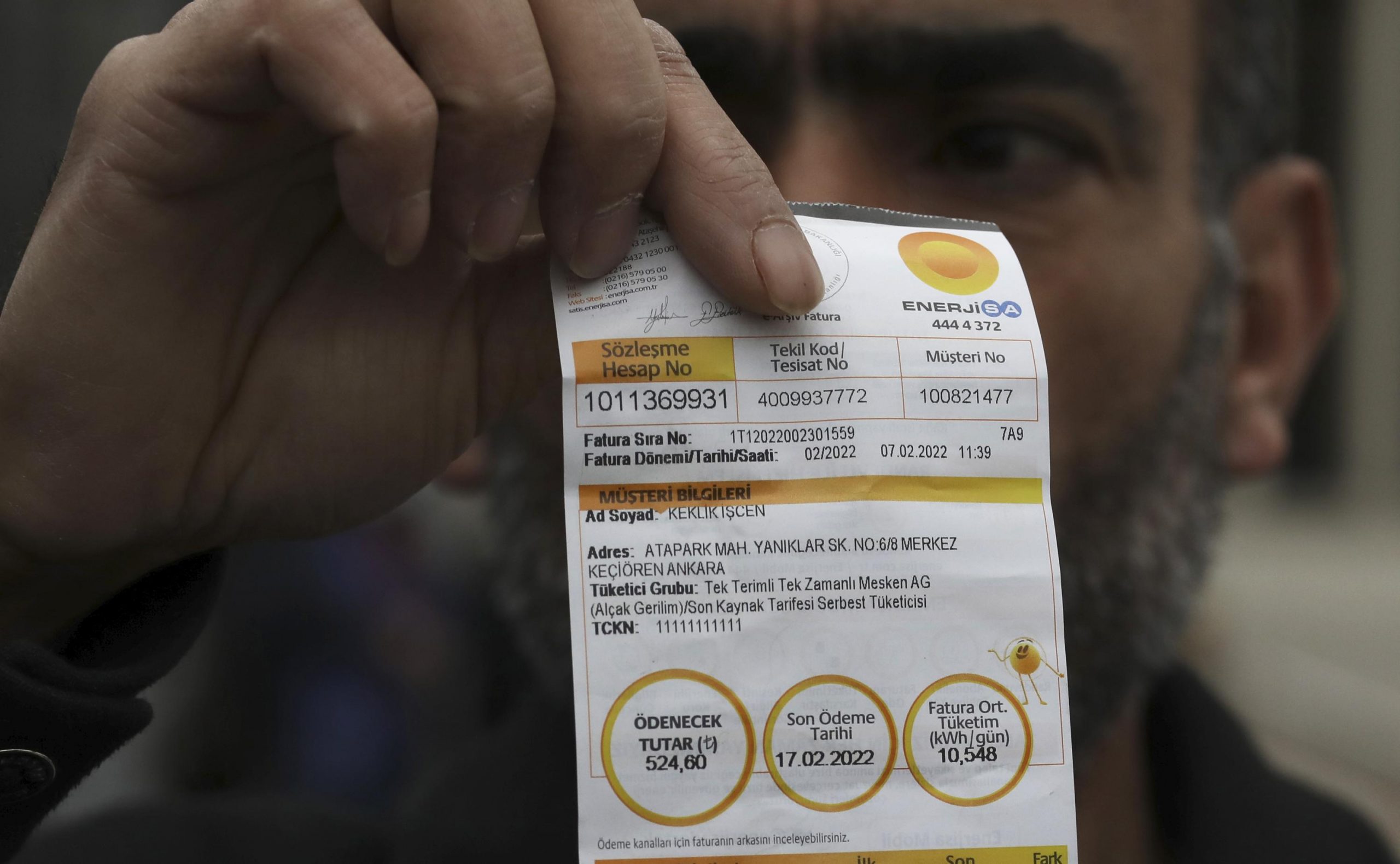ANKARA, Turkey (AP) — Turkey’s president announced a set of measures Wednesday that aim to bring relief to households and businesses reeling from high inflation and soaring electricity bills.
In a televised address following a Cabinet meeting, President Recep Tayyip Erdogan said authorities would readjust the level under which higher electricity tariffs for households using more energy kick in, while some 4 million households in the country of more than 84 million people would receive state subsidies to help with high natural gas and electricity bills.
Civil society organizations would no longer pay the higher energy tariffs that apply to businesses, he said, adding that some small businesses would also be able to benefit from readjusted tariffs.
Inflation in Turkey soared to a 20-year official high of nearly 49% in January, eating away savings and making it difficult to buy even basics like food. Experts say the real rate of inflation could be much higher than the official number.
Households and businesses have additionally been hit with sharp hikes in energy prices after authorities raised electricity tariffs on Jan. 1, spiking prices by more than 50% for many homes and as much as 127% for businesses and high-consumption households.
Protests have broken out against high electricity bills and many small businesses, like restaurants, have been displaying exorbitant electricity bills on shop windows to show how close they are to being driven out of business.
“We continue to support households in electricity and natural gas. We are listening to the voice of our nation and finding solutions to their problem,” Erdogan said.
The president insisted that high inflation was “temporary” and that his government would bring it under control.
“Our most important problem is high inflation. Hopefully we will overcome it and see it go down month by month,” he said.
Critics however, blame high inflation on Erdogan’s insistence on lowering interest rates. The Turkish leader maintains that high interest rates cause inflation, a theory in contrast to conventional economic thinking.
Turkey’s central bank has reduced the key policy rate by 500 points since September to 14%, but paused rate cuts in January. The Turkish lira hit record lows in December following the rate cuts. Prices have skyrocketed due to Turkey’s dependence on imports of energy, raw materials and many food supplies.
Earlier this week, Erdogan’s government lowered the value-added tax on basic food supplies to 1% from 8%.



